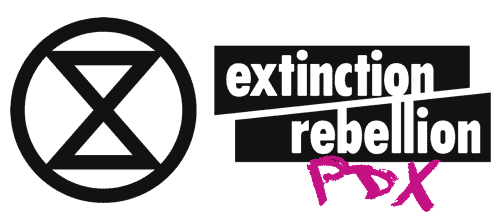Garbage is something that is talked a lot about in environmental activist spaces. Corporations are pumping plastics into our oceans, our wild spaces, and even our bloodstreams. The Zero Waste movement has taken hold of lots of places, while others say “going zero waste” puts pressure on the individual and not the corporations actually producing the garbage.
Here in Portland, the garbage conversation has become a difficult one. With China banning the acceptance of recycling in 2018 it became much harder to recycle our waste. And you practically can’t have any conversation about the city in general without someone bringing up the trash that houseless communities produce across the city, of course without any deeper discussion of the deeper reasons why houselessness has become such an issue here.
But in Portland we’re lucky. We still have recycling, and good recycling at that. We have municipal compost that accepts all food and yard waste. We have services like Ridwell available to us so that we can recycle plastic film and batteries with ease. We have resources available to minimize the plastic we bring into our homes, and there are plenty of local zero waste stores and companies, including but not limited to Way of Being, Silver Falls Sustainability Company, and The Realm Refillery. We are able to do large-scale local clean up projects, and many people are so aware of the trash problem that they pick up litter without a second thought.
But it isn’t like this everywhere.
I recently spent a month in Egypt. Egypt is a beautiful country with diverse wildlife, incredibly kind people, and so much history. And Egypt, just like the rest of the world, has a trash problem. Not just a current one. Egypt has a 6,000-year-long trash problem.
Egypt’s capital, Cairo, has over 20 million residents. 20 million people create a lot of garbage. Especially in a place with no drinkable water. Walking down the street, or along the Nile you see trash everywhere. Plastic bottles rolling down the street, plastic bags floating down the river. And you’re going to have a trash problem in a city of 20 million with no municipal garbage collection service. I watched a woman toss her fast food garbage into the river without a second thought. The outside world is where the garbage goes, that’s just how it is.
And yet, it doesn’t just pile up. In a cramped part of old Cairo on a plateau filled with winding streets too narrow for cars, you’ll find Mokattam. Also known as Garbage City, Mokattam is a lower class, primarily Coptic Christian residential neighborhood. It is also the home of the Zabbaleen garbage collectors. Every morning the Zabbaleen community goes out across the city, to the doors of people’s homes, and picks up the garbage. They load up their vans and pick up trucks, and brings it home. Then they sort the garbage by hand in order to make a living. Some of the community started a recycling center, where they make beautiful handicrafts from the garbage they collect. They were able to make enough money through this project to start a school, and install solar panels. You can see some of their gorgeous creations here.
And so, as it goes, Cairo is pretty clean. The Zabbaleen do an admirable job with so much garbage. In places without them, like north in Alexandria, garbage chokes public parks and streets, and litters the beaches.
It isn’t just plastic I noticed. At the pyramids, I noticed terracotta shards littering the ground. And again at the catacombs in Alexandria. And again at the temple to Sobek at the oasis of Fayoum. Thousands upon thousands of broken pottery shards litter the ground. Because these have always been places of pilgrimage, worship, and tourism. And where people go, so does their garbage. Plastic bags and water bottles may be the detritus we see the most today, but we’ve been breaking things, leaving things behind, or simply throwing things away for thousands of years. In Greco-Roman times it became tradition to break your picnic wear and leave it behind at these places, the original disposable plates. And so we’re left with two thousand-year-old trash still with us today.
We have always had a trash problem. Part of me thinks that we always will. But part of me is also hopeful that we can change, and learn for the better.

